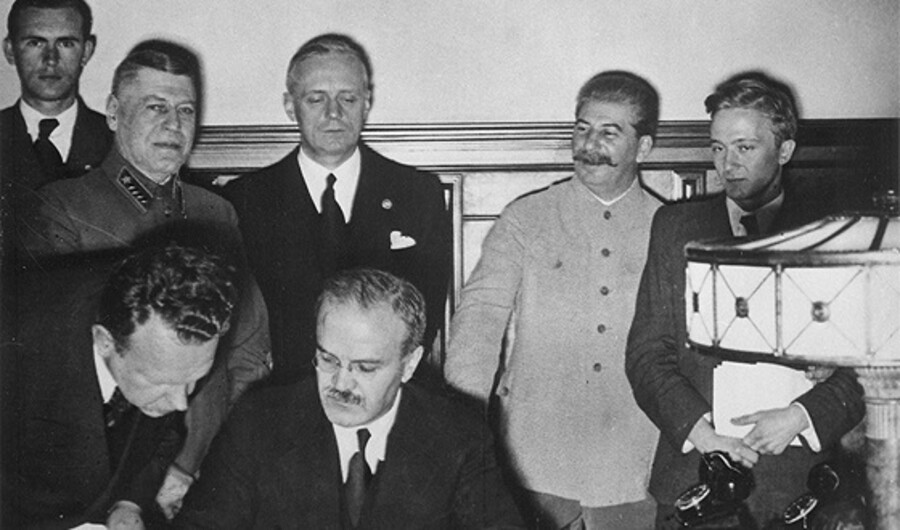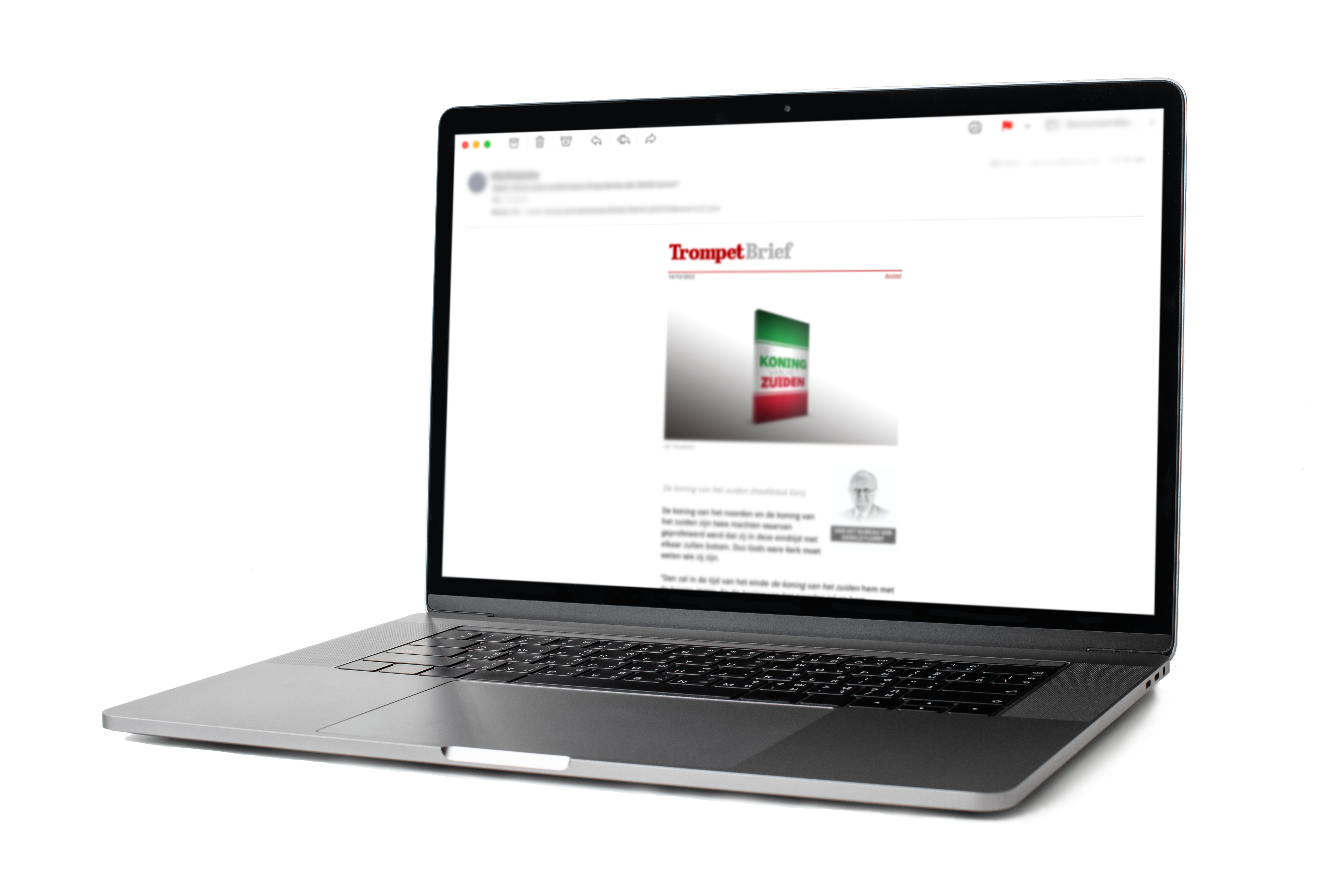
Germany and Russia Plotted a Secret War for Years
Adolf Hitler and Joseph Stalin signed a pact. This fact is well known. But the details surrounding their agreement are not.
In August 1939, Nazi and Soviet leaders infamously divided Poland between them. They both invaded the following month. But this was not the only result to come out of the August meeting. Nor was it the start of the Russo-German partnership. This partnership in the run-up to World War ii was deeper, longer-lasting and stronger than many realize.
This vital history shows us the true nature of international relations. Russian-German relations are in the news once again. United States President Donald Trump is openly accusing Russia and Germany of conspiring together. The last time they did this, they launched World War ii.
This chapter of the story begins in 1917.
Germany launched World War i in order to smash Russia and expand east. In 1917, it got everything it wanted. On March 8, the “February” Revolution in St. Petersburg overthrew Russia’s Romanov dynasty. And Germany sensed an opportunity.
German Gen. Erich Ludendorff sent an invitation to Communist revolutionary Vladimir Lenin, who was then living in Switzerland. Germany would guarantee Lenin safe passage through Germany and help him to reach Russia.
The Germans used Lenin “like a typhoid bacillus,” Winston Churchill later said. They sent the revolutionary (in a sealed train carriage) to Russia in order to stir up trouble. Russia’s new government was continuing the war against Germany, and the Germans hoped Lenin would undermine it.
It worked beyond their wildest dreams. Lenin arrived in early April. On November 7, he launched the “October” Revolution. The Communists took power. Soon, Lenin had seized power and signed a peace treaty that gave the Germans almost everything they wanted.
Meanwhile, the Germans supported Lenin, helping him stay in office. As German Foreign Minister Adm. Paul von Hintze said in July 1918, “The Bolsheviks are the best weapon for keeping Russia in a state of chaos, thus allowing Germany to tear off as many provinces from the former Russian Empire as she wishes and to rule the rest through economic controls.”
Thus began a relationship that would continue for decades.
After World War i, Germany and Russia were officially on bad terms with each other. The Soviet Embassy staff had been kicked out of Germany in November 1918.
Unofficially, contact continued. “The links of self-interest established between [Lenin] and the German military in November 1917 seem to have been maintained, albeit sometimes in tenuous form, even after the Armistice,” writes historian Paul Johnson in his book Modern Times.Throughout the Russian civil war, Germany helped Lenin’s Bolshevik faction, sending them military advisers, weapons and, “in due course, industrial experts in building new war factories,” writes Johnson. “The last point was vital to the Germans, who under the Versailles Treaty had to dismantle their armaments industry. By secretly coaching the Bolsheviks in arms technology and developing new weapons in Russia, they were maintaining a continuity of skills which, when the time was ripe, could once more be openly exploited back at home. Thus a strange covert alliance was formed, which occasionally broke surface … but for most of the time was carefully hidden: a working relationship of generals, arms experts, later of secret police ….”
On April 16, 1922, Germany and Russia signed the Treaty of Rapallo. On the face of it, this was a standard diplomatic rapprochement between two former enemies. But it opened the door for much closer cooperation between Germany and Russia—cooperation that was not fully uncovered until much later. Germany would carry out military research, development and training—which had been outlawed by Versailles—in Russia. In exchange, Russia would share in the military advances and train with the German Army. Germany set up secret bases, factories and airfields in Russia.
This was 20 years before Germany would be fighting the United States. Adolf Hitler was a 33-year-old who hadn’t even begun his rise to power, and was more than a decade away from becoming chancellor. Yet Russia and Germany were already conspiring against the West to overthrow the international order. This secret alliance was one of the main reasons why Germany was able to explode into power once Hitler became chancellor in 1933.
When German and Soviet ministers met on the night of Aug. 23, 1939, to divide Eastern Europe between them, they weren’t beginning a new relationship. Instead, as Johnson writes, “[i]t was the culmination of a series of contacts between the Soviet and German governments which went right back to the weeks following Lenin’s putsch. They had been conducted, according to need, by army experts, secret policemen, diplomats or intermediaries on the fringe of the criminal world.”
“For two decades this evil stream of exchanges had flowed underground,” writes Johnson. “Now at last it broke the surface.”
Known as the Hitler-Stalin pact, or the Molotov-Ribbentrop Pact, the deal was announced as a “nonaggression pact.” It was the opposite; it split Eastern Europe between Russia and Germany.
It also paved the way for worldwide Communist support for Nazi Germany. “All over the world, Communist parties reversed their anti-Nazi policy, preaching peace with Germany at any price, and actively sabotaging the war effort when it came,” writes Johnson.
Crucially, “Stalin placed at Hitler’s disposal all the immense raw material resources of the Soviet Union,” he writes. Stalin sent Germany 1 million tons of grain, 900,000 tons of oil, iron ore and other minerals.
Their partnership was so close, that when Soviet forces came under heavy fire on June 22, 1941, many of them did not know who was attacking. When Stalin heard the reports, he was caught completely by surprise.
Historian Andrew Roberts called Germany’s surprise attack on the Soviet Union “the worse kept secret of the war.” Stalin received at least 80 warnings that Hitler was about to stab him in the back. But he still didn’t believe it. When the attack came, Stalin appears to have had some sort of mental breakdown. As German forces came rushing in, one Russian unit radioed its command post to report that it was under attack from the German Army, and to ask for instructions. The reply: “You must be insane.”
This 20-year period encapsulates hundreds of years of Russian and German history. The two switch from being best friends to worst enemies with incredible speed. An alliance with the German state of Prussia allowed Russian Empress Catherine the Great to expand her empire by 200,000 square miles. And a similar allowance allowed the later Prussian Chancellor Otto von Bismarck to unite Germany under Prussian rule, defeat France and Austria, and become the most powerful nation in Europe. I covered the full history on my Trumpet Daily Radio Show earlier today.
The same patterns keep repeating. Germany and Russia fear each other. But Germany wants access to Russia’s raw material wealth, and Russia wants access to Germany’s know-how. When the two find a way to form an alliance, however temporary it might be, both get what they want and are able to use their resources to dramatically expand their power in other regions.
We see the same pattern today. Germany’s manufacturing powerhouse is fueled by cheap Russian gas. Meanwhile, Russia benefits from German expertise. For example, 80 percent of Russian power stations use advanced turbines manufactured by Siemens.
Trumpet editor in chief Gerald Flurry focused on the new gas pipeline in his latest Key of David program, “Germany and Russia’s Secret War Against America.” If you have not watched it already, please view it here:
This is also the subject of Mr. Flurry’s cover article in the September Trumpet issue.
The Germans and the Russians do wage secret wars. They sign secret deals that remain underground for decades. We like to convince ourselves that everyone wants peace and all nations just want to get along. But history reveals to us the real world. Nations want power, and they will go to war to get it.
The Bible prophesies of one last major world war among the great powers.
“Do you really see what is happening in Europe?” asked Mr. Flurry in his article. “Do you see the stage being set for a world war like never before? Do you understand it? God spells it out for us, and we can see events lining up with His prophecies. And anyone who sees it—and heeds the warning and obeys God—can be protected and lead a happy, stable and fulfilled life!”
Watch for his article, and watch the Trumpet daily to keep up with these important events building in Europe. ▪
